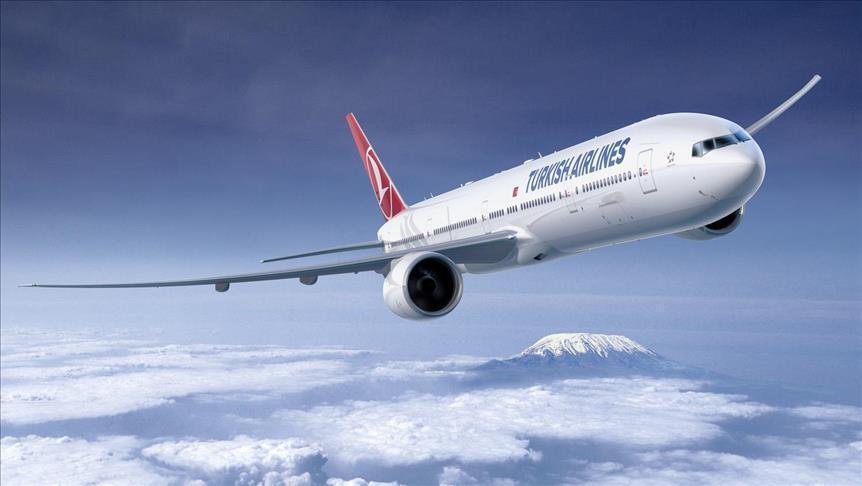
Full recovery of world air passenger travel may well take as long as 2023-24, as vaccination campaigns alone will not suffice to bring the market back to pre-pandemic levels, according to the chairman of national flag carrier Turkish Airlines.
Speaking exclusively to Anadolu Agency, İlker Aycı said 2021 will be a year of transition for the aviation sector.
"Even if the whole world is being vaccinated at the same time, the market will not pick up soon, as financial recovery for both companies and customers will take time," Aycı said.
At the end of the first quarter of 2020, when coronavirus’s full impact was starting to be felt, the global air freight market narrowed as passenger jets were grounded, also making those flights unavailable for carrying cargo.
But Turkish Cargo, a division of Turkish Airlines, continued its operations using both cargo and partial passenger aircraft while gaining ground at a time, when most air passenger operations ground to a halt, Aycı stressed.
Citing International Air Transport Association (IATA) data, Aycı underlined that in January-October 2020, while the global market volume nosedived 20.8%, Turkish Cargo still managed to rack up a 0.4% rise in air cargo.
Turkish Cargo’s market share climbed to 4.7% (in January-October), from 4.1% (in January), Aycı said, adding:
"With this development, we rose to sixth place in 2020, up from eighth in January-October 2019."
Meanwhile, according to figures from World Air Cargo Data (WACD), Turkish Cargo's income market share grew to 5.3% in January-November, up from 4.6% at the beginning of last year.
Vital vaccine delivery
Aycı stressed that thanks to rising demand, the number of Turkish Cargo’s direct destinations has now expanded to 96.
“At the beginning of last year, we provided direct freighter operations to 88 destinations. During the pandemic, as the cargo demand to some specific points rose, we arranged additional flights," he explained.
Underlining that Turkish Cargo has a share of 7.5% in the world vaccine and medicine delivery market, Aycı said the freighter has been getting ready to do the vital job of carrying coronavirus vaccine doses throughout its flight network, especially to Turkey.
"If we want, we can bring the vaccines [Turkey needs] within a few days thanks to our fleet of 363 aircraft and our cold storage units at Atatürk Airport with a capacity of 150 aircraft pallets," he said.
"We can handle 20-30 million doses of vaccine in one day at our facility at Atatürk Airport and deliver it to those in need."
Saying that an effective vaccination process in developed countries is expected by around the middle of this year, with vaccine production and distribution being done smoothly, Aycı said:
"It may take more time for this to spread all around the world. Thus, we should think globally to assess the vaccine’s impact on the aviation sector."
Ready for a rebound
The recovery will first be seen in domestic passenger flights, Aycı stressed.
"Airlines focusing on domestic flights in developed and developing countries will be the first to benefit from the positive impact of the vaccine," he explained, adding that recovery of the intercontinental transfer market will take more time.
Stressing that the company will maintain its financial discipline this year, Aycı said that as far as possible it will postpone investments that would not disrupt its operations.
All necessary measured will be taken to make sure the company is ready for a rebound in demand, he said.
Aycı added that mobilization in various sectors around the world will lend momentum to cargo transportation.
"We will be taking steps to strengthen our position in the market," he said.
"Since we will benefit more from the capacity of passenger aircraft compared to last year, we will shift some of the freight carried by cargo aircraft to passenger aircraft," he noted.